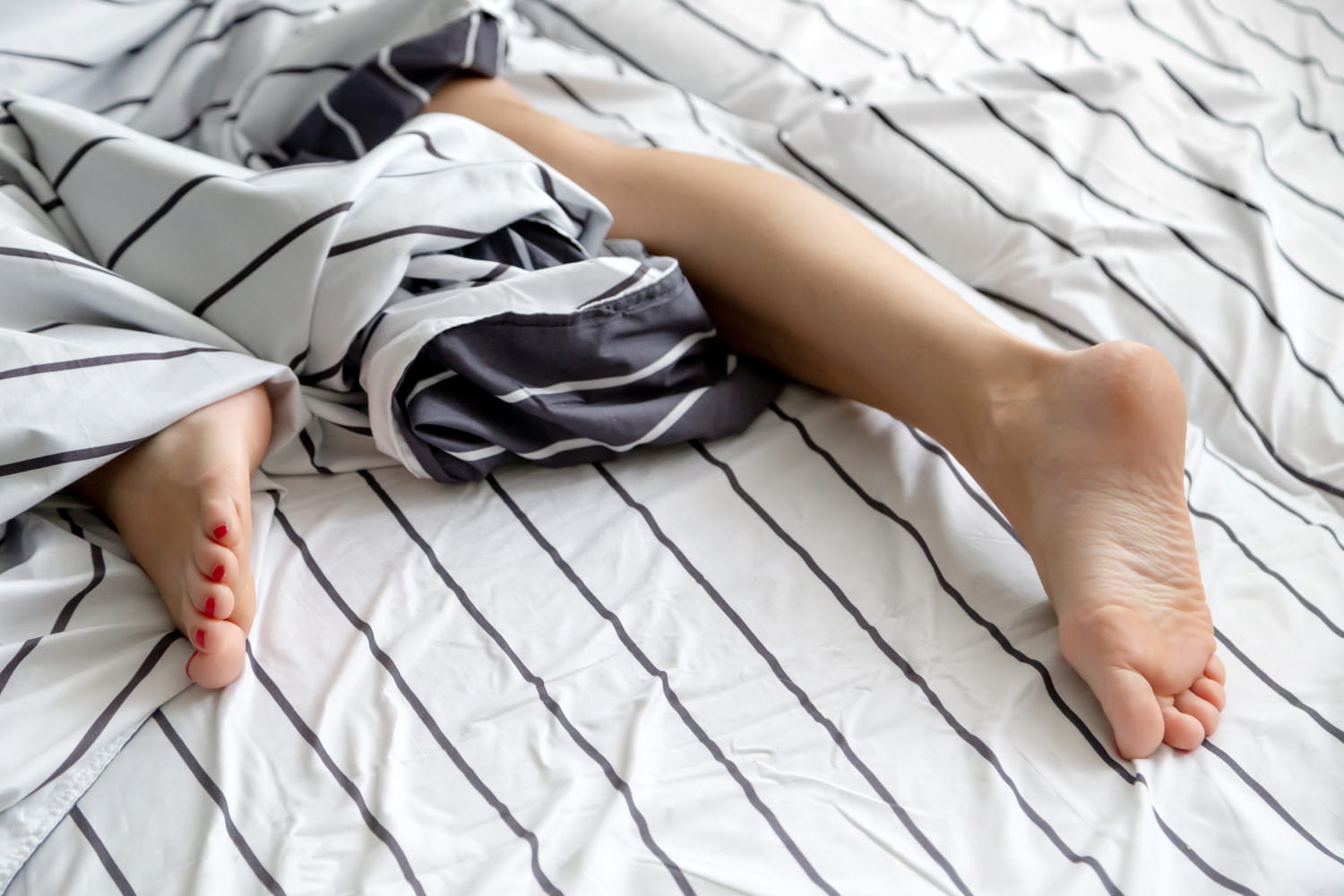It’s not just a mechanical gesture. There is a real physiological reason for this habit which affects many people…
It’s a nighttime reflex that many of us have. When looking for sleep, while the body is warm under the duvet, taking one foot out into the open air seems to help us fall asleep. This gesture, often unconscious, is not just a simple oddity. It is actually a fundamental physiological mechanism that our body uses to facilitate the process of falling asleep. Explanations.
Taking one foot out of the sheets initially gives a pleasant feeling of well-being. “Some people do it unconsciously to comfort themselves or to find sensory balance: a little fresh air can soothe the body” says Leah Kaylor, psychologist and sleep expert with Bustle. The effectiveness of this gesture is also due to the particular anatomy of our feet. A Japanese study showed that the skin of peripheral areas, such as that of the feet, is rich in “arteriovenous anastomoses”. These direct connections between arteries and veins “facilitate heat loss through the surface of the skin“. The feet thus help regulate body temperature, which is very important for sleep.
The body needs to cool down so that the brain can initiate the sleep cycle. “We lose about 1 degree to sleep well” according to the National Institute of Sleep and Vigilance (INSV). By taking one foot out of the duvet, we spontaneously use our natural thermoregulation tool to accelerate this drop in temperature. This cooling in turn promotes the secretion of melatonin, the hormone that regulates sleep-wake cycles, limiting nocturnal micro-awakenings and promoting deep slow-wave sleep, the most restorative. In summary, if you take one foot out of the blanket, it’s to cool down and fall asleep faster.
To help you fall asleep,the room temperature is optimal between 18°C and 19°C”recalls the INSV. This temperature must not exceed 20°C. Also choose sheets and pajamas made from natural fibers such as cotton or linen. These materials “breathe” and allow heat and humidity to escape throughout the night, unlike synthetic materials which trap it and can cause micro-awakenings.


